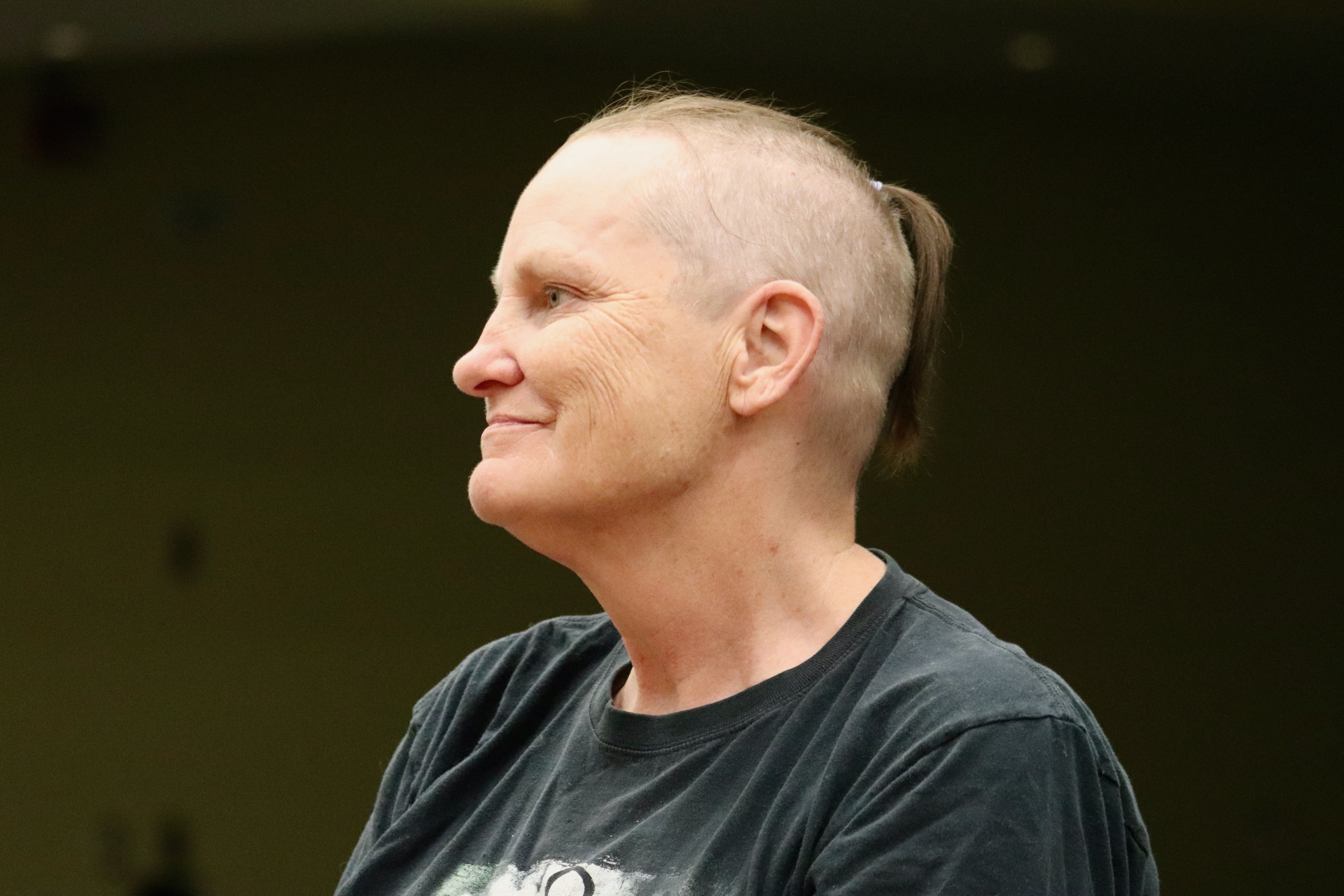Participants of Circles South Muskoka share experiences with housing crisis. This story is the second in a four-part series featuring members of Circles South Muskoka discussing poverty and how to achieve more stability.
What does home mean?
Our reporter met with YWCA’s Circles South Muskoka group members in Gravenhurst to discuss their experiences with the housing crisis.
Circles ally Bonnie Dart, who is chair of Gravenhurst Against Poverty (GAP), said many of the organization’s clients are in precarious housing situations.
She recalled one person who wanted to sign up to the food program but didn’t have an address. When this happens, GAP refers them to the District of Muskoka’s housing department and their address is listed as the district’s office.
There are about 650 people on the waiting list for district housing.
“The more you’re sort of immersed in this, the more frustrating it gets with what people are going through,” said Dart.
Two Circles leaders have moved out of Muskoka due to the housing crisis.
Circles leader Sarah Crockford shared that she and her family lived in a shelter from November to February. She was looking for places every week before finding housing outside of the area.
Moving away means losing friends and connections to community resources, and it can be tiring to start over again.

Circles leader Terri Jo Déraiche had a recent scare when her landlord said they were considering selling the property. Since the last Circles meeting, she said they have changed their mind. However, Déraiche has a friend who has been given 60 days’ notice to leave their apartment.
“I have friends that are living at the Skyways (Motel) because their landlord sold the house,” said Déraiche. “It’s happening to a lot of people.”
And a motel is not a place to call home.
To leader Sarah M., home means not being afraid to unpack.
“When your housing is so insecure or you only have a certain amount of time somewhere, you’re almost afraid to set roots out, to unpack, to actually get out there and make connections because you never know when you’re just going to be uprooted and tossed somewhere else,” she said.
As the group agreed, home means more than the physical shelter itself.
“Having a home to me means a place of safety, a sanctuary where you can go and sometimes let some of that go, some of the outside stress,” said Déraiche. “You can be in your own space doing your own things and not 100 per cent always worrying about what’s going to happen next.”
Circles ally Gerry Lawrence volunteers with GAP and said there were a few men who used the food program and lived in tents behind Canadian Tire. He hasn’t seen them in several months, “and that concerns me,” he said.
The crisis affects everyone, from volunteers on the ground to employers trying to attract workers who cannot find shelter.
Another issue is the power dynamics between property owners and tenants, and the stigma against people in district housing and those on programs like Ontario Works and the Ontario Disability Support Program, said Circles coach Kelly Jones.
She shared her negative experience in district housing, facing abusive behaviour from neighbours.
Sarah M. said she has had problems with a landlord not completing repairs, and having to share a tight airspace with neighbours and dealing with their second-hand smoke.
“It’s sad that you rent a place and you don’t have dignity about the place,” commented Dart.
The group shared several ideas for solutions to the crisis. They are:
• appealing to government leaders for more funding
• looking at barriers to creative builds like tiny and modular homes
• offering incentives for people to become landlords, tax breaks for offering affordable rents in secondary suites, and support for renovations
• considering controls for short-term rentals
• offering more rental subsidies
But to achieve solutions, people must shift their mindsets on what housing means, said Jones.
“Your housing is that stability for everything you do. When I get to come home and close those doors, that means tomorrow when I go to work, I’m going to feel fresh,” she said.
Sarah Law – Gravenhurst Banner – Monday, June 20, 2022
